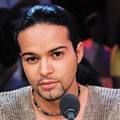Information sites, well-known Arab institutions and research centers rely on a site called Numbeo in some of their articles on rankings of countries in the «security index», «pollution index», and «quality of life index». Are the statistics and rankings from this site reliable?
Well-known websites in the Arab world often share news and reports about Numbeo, calling it a «global database encyclopedia», the «largest and most famous internet resource globally», or a «renowned platform» specializing in measuring global crime and security rates. They also refer to it as an «American site providing thousands of data and statistics».
These articles often use phrases that suggest the statistics from Numbeo are credible, accurate, and universally applicable.

For example, the site Hespress, the largest Moroccan news site, quoted statistics from Numbeo stating that the water pollution rate in Casablanca reaches «67.50%». Similarly, the site of the channel Al Jazeera Mubasher stated in an article based on Numbeo that «Qatar is the safest country in the world in terms of security and crime reduction». Likewise, the site Alaraby Al Jadid indicated based on the same site that «Lebanon is the most expensive country in terms of cost of living», while the site Al Jazeera stated in one of its articles based on Numbeo that Morocco is the worst country in the world in terms of healthcare.
Organizations, research centers, and government institutions
The Qatari Ministry of Interior allegedly reported that Qatar is the safest country in the world based on Numbeo. A Qatari government website also used Numbeo statistics to invite tourists.
The Director General of Abu Dhabi Police expressed his gratitude following Abu Dhabi's ranking as the safest city according to Numbeo. Qatar has adopted certain Numbeo statistics in its 2021 voluntary review submitted to the United Nations Sustainable Development Goals (SDGs).

Numbeo's statistics are also used in academic research, university studies, scientific journals, and by some well-known research centers, such as the Arab Center for Research and Policy Studies, the Jordanian Strategy Forum, and the Emirates Center for Strategic Studies and Research.
The Tunisian Forum for Economic and Social Rights (FTDES) used Numbeo's statistics to criticize government policies in Tunisia.
The Moroccan website Aldar also quoted Numbeo's statistics to talk about «the growth of crime in Algeria in all its forms, in a way that sows terror and fear in the hearts of the Algerian people». Conversely, the Algerian News Agency referred to Numbeo's statistics on the allegedly deteriorating standard of living in Morocco.
Al-Adl wal-Ihsan, Morocco's largest Islamist group, used the Numbeo index, which ranked the Kingdom last in healthcare, to criticize the government. The ranking was widely quoted by Moroccan news sites and on social media, prompting the Ministry of Health to break its silence and point out in a statement that the ranking lacked accuracy and objectivity.
The Truth about Numbeo
Numbeo, created by a Serbian citizen named Mladen Adamovic in 2009, is registered in Serbia. The site itself emphasizes that it allows «anyone with an internet connection to change its content», and that «anyone with an Internet connection to alter its content. Please be advised that nothing found here has necessarily been reviewed by people with the expertise required to provide you with complete, accurate or reliable information. Use our content at your own risk».
«We do not provide any warranties that our services will meet your requirements, be uninterrupted, timely, accurate, or error-free, or that your information will be secure. No warranty whatsoever is made that any of the data or articles are accurate. There is absolutely no assurance that any statement contained on the website is correct or precise».
The site disclaims liability «to you or any other party for any direct or indirect damages» it may cause. Numbeo presents itself as specializing in issuing several indicators on an annual and semi-annual basis. Data comes from users who express their evaluation of any indicator, without verification of the information provided.

A single person can change the ranking by providing multiple evaluations. For example, a single browser could rate a city as safe repeatedly, moving it from a safe city to the most dangerous in the world.
For instance, between January 2, 2023, and December 28, 2022, the ranking of Morocco's capital Rabat in the Crime Index changed from 301st to 290th due to just two people's opinions.
Similarly, on December 28, 2022, the Nepalese capital was listed as the most polluted city based on only 216 people's opinions. Other cities followed with similarly low sample sizes. Casablanca ranked 32nd based on 91 opinions, highlighting the lack of reliable data.

Therefore, it's clear that Numbeo is more like an «online forum» collecting visitor opinions on various topics (indicators). The information lacks accuracy and scientific credibility.
Credible alternatives to Numbeo
In contrast to Numbeo's Global Security Index, which relies on user opinions, the University of Sydney's Institute for Peace and the Global Economy publishes an annual Global Peace Index. This index relies on several factors, including deaths from conflict, militarization, terrorism, food security, political stability, and more. The ranking is based on scientific criteria and differs significantly from Numbeo's, where Qatar is ranked 23rd and Iceland first.

For the pollution index, unlike Numbeo's approach, the World Health Organization measures air pollution through a network of sources. This includes a database monitoring air quality in public places, official government reports, the «Clean Air Asia» system, the European Environment Agency's database, and ground measurements collected for the Global Burden of Disease project.

Not only Arab media outlets and research centers, but also well-known Western media outlets have cited data from the Serbian website Numbeo. These include Forbes, Euronews, Fox News, Russia Today, and the Spanish news agency EuropaPress.





 chargement...
chargement...













